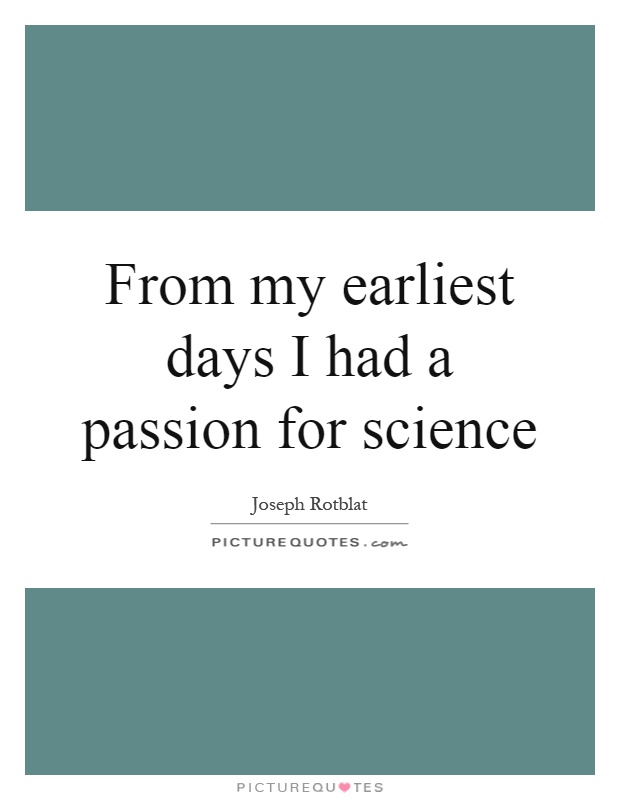From my earliest days I had a passion for science

From my earliest days I had a passion for science
From his earliest days, Joseph Rotblat had a passion for science that would shape the course of his life and career. Born in Poland in 1908, Rotblat was deeply interested in the natural world and the mysteries of the universe from a young age. His curiosity and thirst for knowledge led him to pursue a career in physics, a decision that would ultimately lead him to become one of the most influential scientists of the 20th century.Rotblat's passion for science was evident in his dedication to his studies and research. He excelled in his academic pursuits, earning a Ph.D. in physics from the University of Warsaw in 1938. His early work focused on nuclear physics, a field that was rapidly advancing in the years leading up to World War II. However, it was the events of the war that would ultimately shape Rotblat's career and his commitment to using science for the betterment of humanity.
During the war, Rotblat was part of the British team that worked on the Manhattan Project, the top-secret program to develop the atomic bomb. However, as the implications of the bomb became clear, Rotblat became increasingly concerned about the destructive power of nuclear weapons. In 1944, he made the difficult decision to leave the project, becoming the only scientist to resign on ethical grounds.
Rotblat's passion for science was not just about the pursuit of knowledge, but also about using that knowledge for the greater good. After the war, he dedicated himself to promoting nuclear disarmament and working towards a world free of nuclear weapons. In 1957, he co-founded the Pugwash Conferences on Science and World Affairs, a series of international meetings aimed at promoting dialogue and cooperation on nuclear disarmament.
Throughout his life, Rotblat remained committed to using science as a force for peace and progress. His passion for science was not just a personal interest, but a driving force that shaped his values and his actions. Joseph Rotblat's legacy serves as a powerful reminder of the potential of science to make a positive impact on the world.







 Friendship Quotes
Friendship Quotes Love Quotes
Love Quotes Life Quotes
Life Quotes Funny Quotes
Funny Quotes Motivational Quotes
Motivational Quotes Inspirational Quotes
Inspirational Quotes